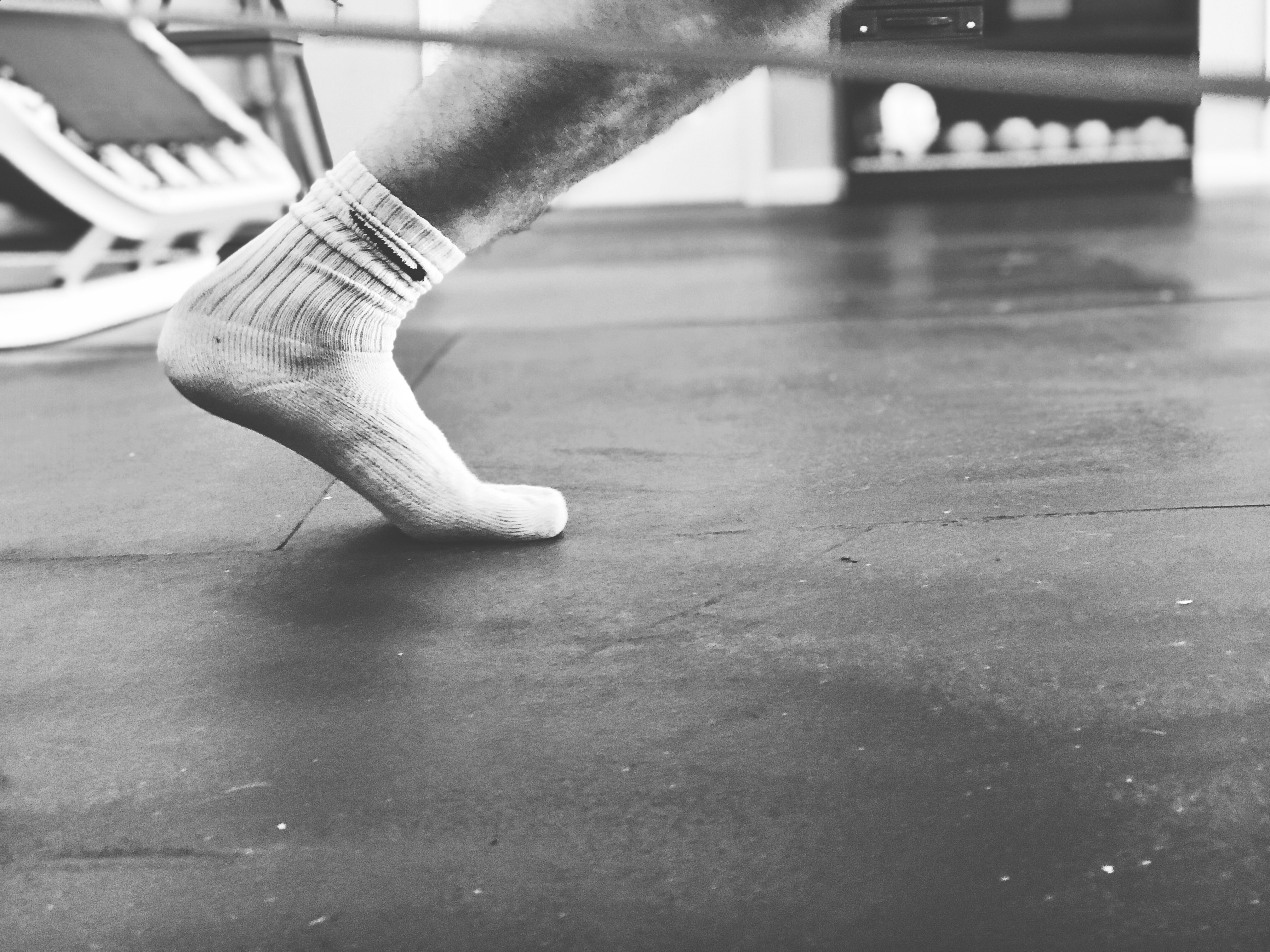
An overuse injury to the Achilles tendon, the largest tendon in the body, which connects the calf muscle to the heel bone. This tendon is used when walking, running, and jumping. Achilles tendonitis most commonly occurs in runners who have suddenly increased the intensity or duration of their runs. Under too much stress, the tendon tightens and is forced to work too hard. This causes it to become inflamed, and over time, can produce a covering of scar tissue, which is less flexible than the tendon itself. If the inflamed Achilles continues to be stressed, it can tear or rupture.
Achilles tendonitis is characterized by dull or sharp pain anywhere along the back of the tendon, but close to the heel. Other signs include limited ankle flexibility, redness or heat over the painful area, a nodule that can be felt in the tendon, or a cracking sound (scar tissue rubbing against the tendon) when the ankle moves.
Tight or fatigued calf muscles, which transfer too much of the burden of running to the Achilles, can be brought on by not stretching the calves properly, increasing mileage too quickly, or simply overtraining. Excessive hill-running or speed work, both of which stress the Achilles more than other types of running, can also cause tendonitis. Inflexible running shoes, which force the Achilles to twist, cause some cases. Runners who overpronate (their feet rotate too far inward on impact) are most susceptible to Achilles tendonitis.
Once experiencing Achilles pain, stop running. Ice the area for 15 minutes several times a day until the inflammation subsides. Self-massage may help, as well as Ibuprofen. Once the nodule is gone, stretch the calf muscles. Do not start running again until you can perform toe raises without pain. Next, move on to skipping rope, then jumping jacks, and then gradually begin running again. It may take six to eight weeks to be able to run again. If an injury does not respond to self-treatment in two to three weeks, see a physical therapist. Surgery is not advised in most cases, as it will just stimulate the growth of more scar tissue.
To prevent the recurrence of Achilles tendonitis, strengthen and stretch the muscles in your feet, calves, and shins. Wear motion-control shoes or orthotics to combat overpronation, and do not run in worn-out shoes. Ease into any running program. Avoid hill work, and incorporate rest into your training schedule.
430 Montbrook Lane Suite 203
Knoxville, TN
37919
Phone: 865-337-5574
Monday
7am-12pm & 1pm-6pm
Tuesday
7am-12pm & 1pm-4pm
Wednesday
7am-1pm
Thursday
7am-12pm & 1pm-6pm
Friday
7am-12pm & 1pm-4pm
Saturday & Sunday
Closed